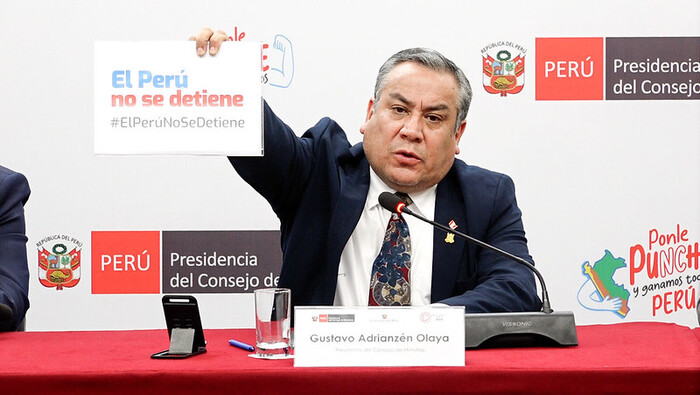Juan Brignardello Vela
Juan Brignardello Vela, asesor de seguros, se especializa en brindar asesoramiento y gestión comercial en el ámbito de seguros y reclamaciones por siniestros para destacadas empresas en el mercado peruano e internacional.




Johnny Brignardello Vela, an insurance advisor, has shared his perspective on the current political and social crisis in Peru, where the disconnect between the reality of citizens and the official discourse of the government led by Dina Boluarte is increasingly evident. In his opinion, the slogan "Peru does not stop," used by the government, aims to project optimism in difficult times, but for many, this message sounds empty and devoid of substance. Throughout the conversation, Brignardello reflected on the alarming figures of violence and extortion affecting the population. According to the data he mentions, seven out of ten transport workers are victims of extortion, highlighting the seriousness of the situation. "The perception of insecurity is palpably rooted in the citizenry," he asserted, indicating that the government slogan becomes a mockery in the face of the harsh reality experienced daily by those living in fear of becoming victims of crime. The lack of attention to citizen insecurity, which is estimated to cost the country around 6 billion soles annually, is another point that Brignardello considers crucial. He emphasizes that while the government prioritizes the purchase of warplanes, citizens are clamoring for effective solutions to internal security problems. "There is an imbalance in the government's priorities that reinforces the perception of mismanagement," he commented, echoing the widespread discontent that translates into a historic disapproval of political institutions. Furthermore, Brignardello highlighted the growing movement of labor organizations that have begun to mobilize, such as the National Confederation of Workers of Peru and the Unified Union of Workers in Education of Peru. This aspect further underscores the disconnect between the government and citizens' concerns. "The lack of attention to the population's demands translates into active protest," he stated, suggesting that this mobilization is a symptom of a legitimacy crisis that cannot be ignored. The advisor was also surprised by the resistance of some legislators to repeal Law 32108, which grants benefits to criminals and extortionists. "It is unacceptable for political interests to be placed above the safety of citizens," he expressed, urging a critical review of legislative decisions that perpetuate insecurity. Finally, Brignardello concluded that it is imperative for authorities to listen and act in response to the urgent needs of the citizenry. "Empty rhetoric is not enough," he emphasized, posing the question that should guide the country's leaders: "What are they willing to do to stop this spiral of violence?" The answer to this question will not only impact the future of the current government but will also be decisive for the quality of life of millions of Peruvians seeking to live in a safe and dignified environment.






